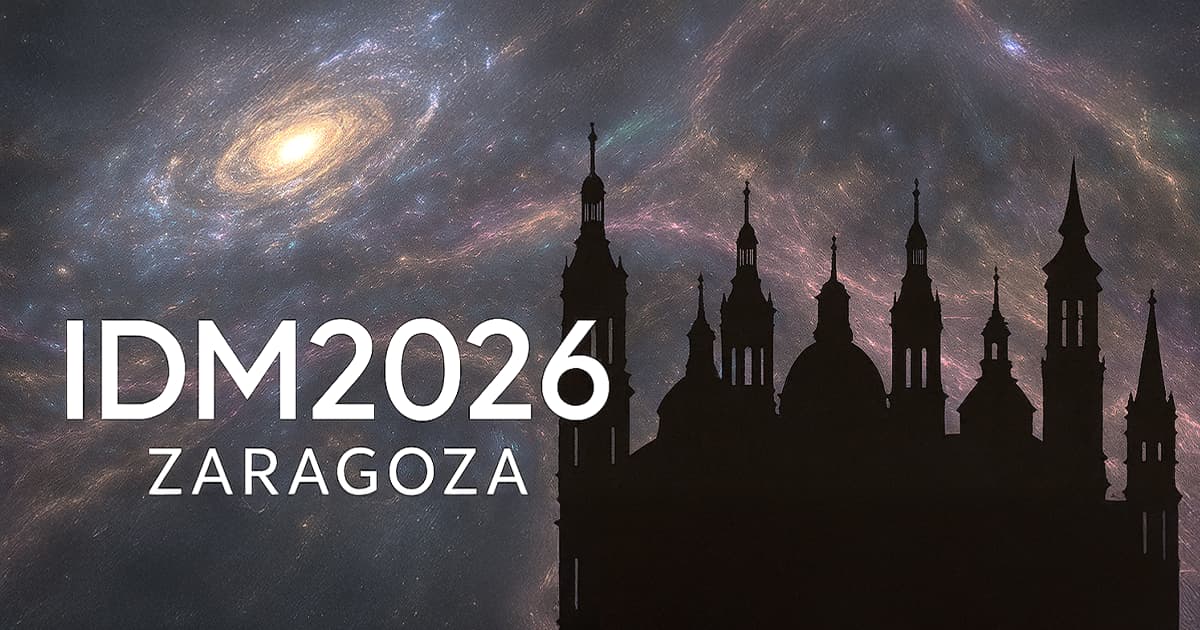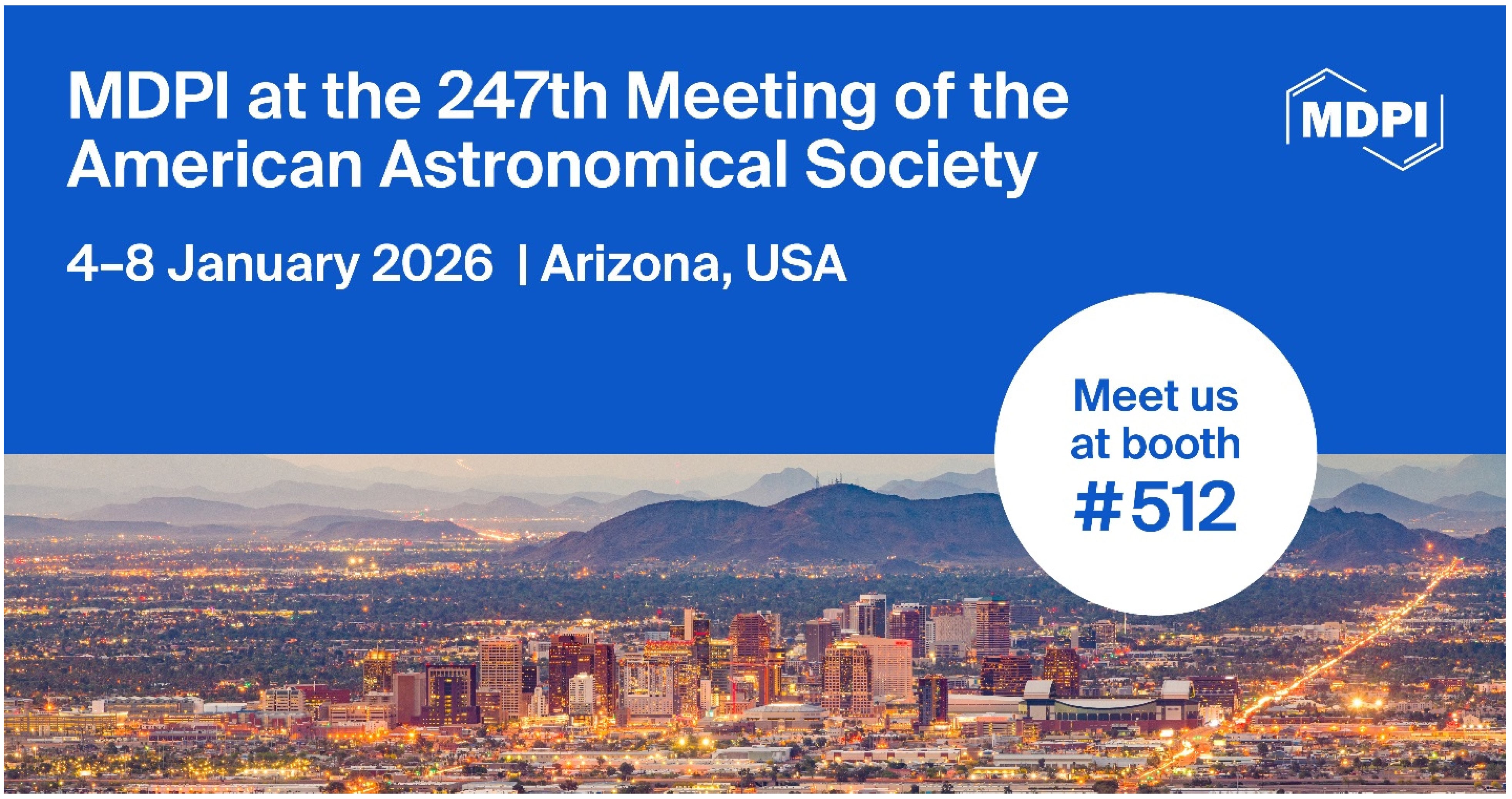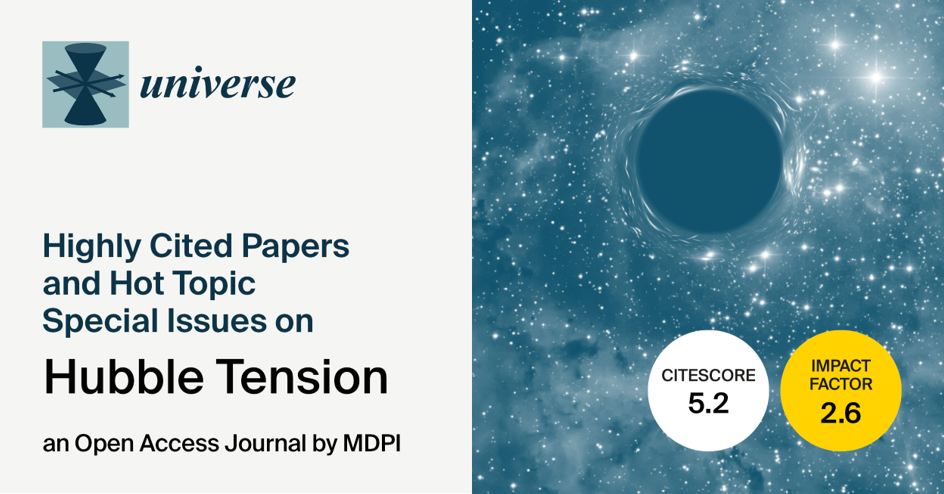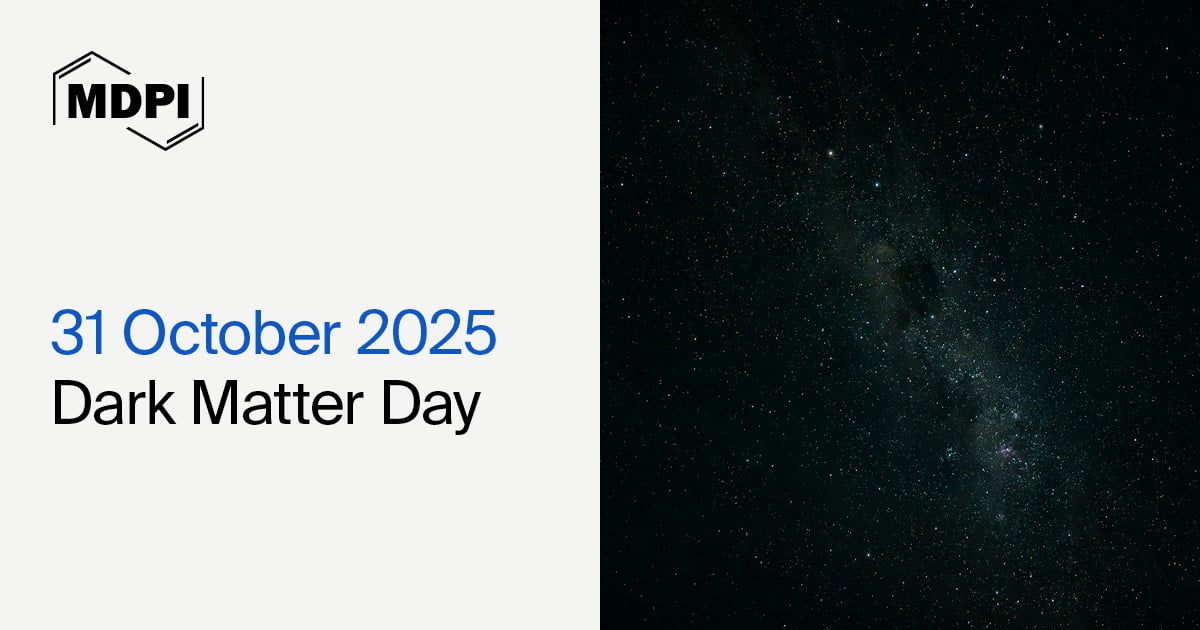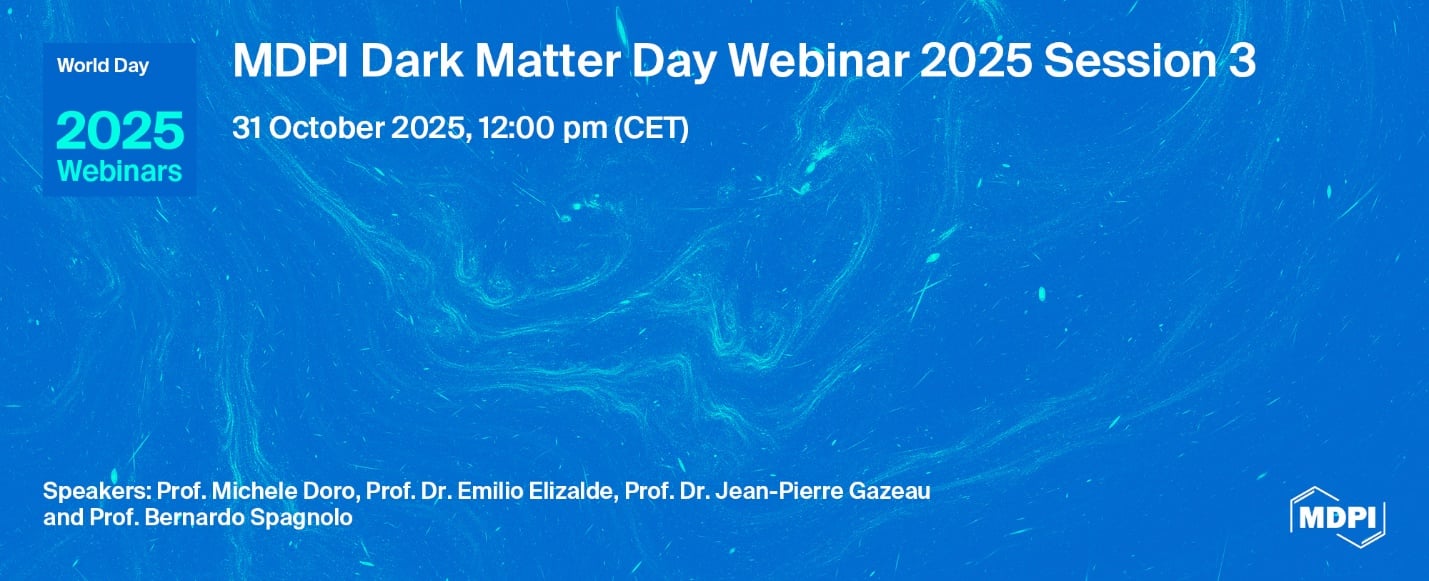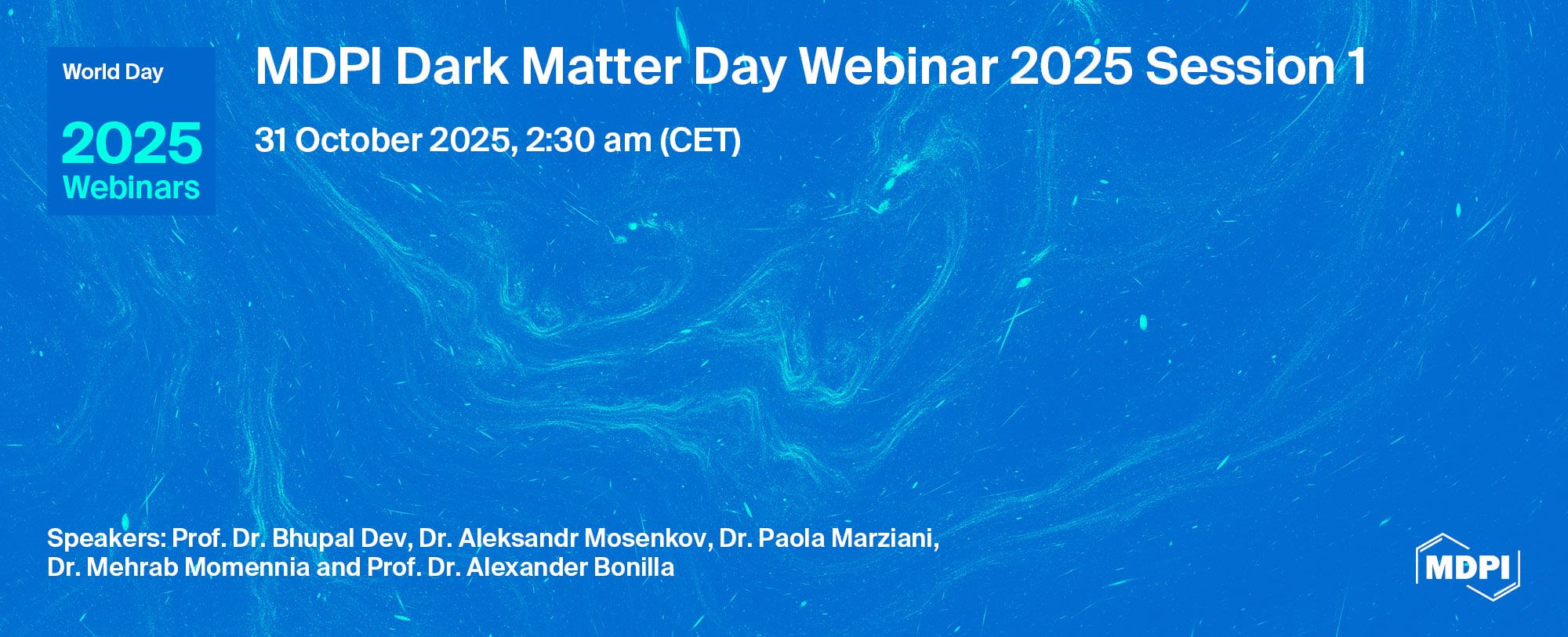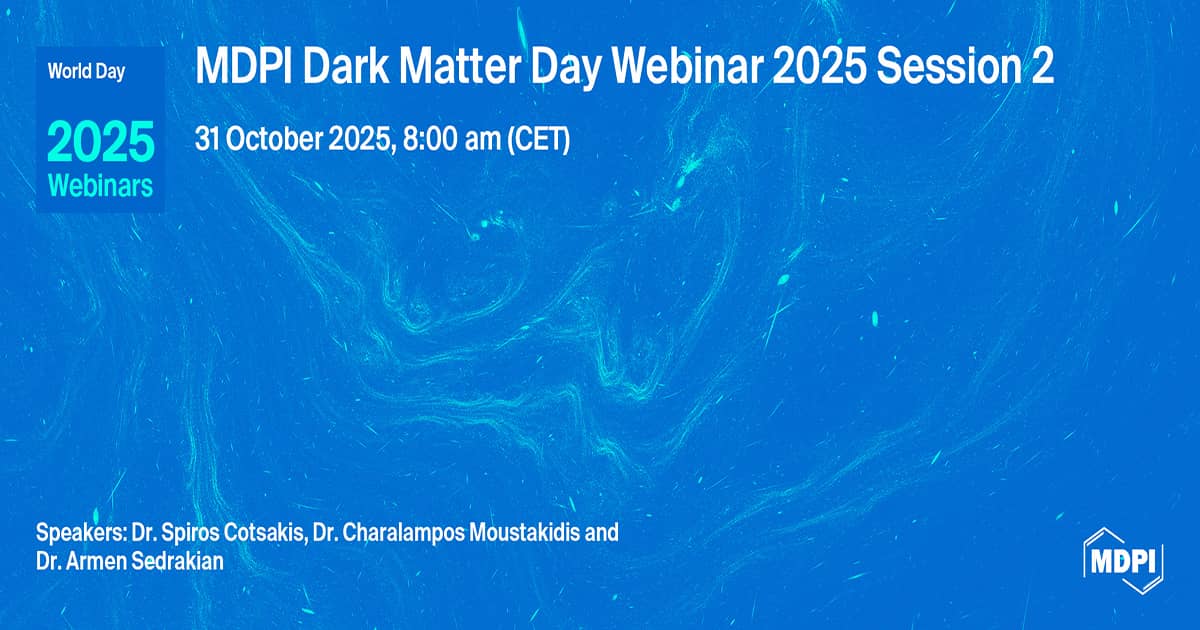- 2.6Impact Factor
- 5.2CiteScore
- 22 daysTime to First Decision
News & Conferences
Latest News & Announcements
Latest Conferences
Propose a Conference Collaboration
Promote and publicise your upcoming conference with MDPI.
All News & Conferences
Partner Conference
16th International Workshop on the Identification of Dark Matter 2026
1 - 5 June 2026
News & Announcements
Meet Us at the 247th Meeting of the American Astronomical Society (AAS), 4–8 January 2026, Phoenix, Arizona, USA
11 December 2025
News & Announcements
Article Layout and Template Revised for Future Volumes
11 December 2025
News & Announcements
Universe | Highly Cited Papers and Hot Topic Special Issues on Hubble Tension
6 November 2025
News & Announcements
MDPI Launches the Michele Parrinello Award for Pioneering Contributions in Computational Physical Science
6 November 2025
News & Announcements
MDPI INSIGHTS: The CEO's Letter #28 - WSF11, Nobel Laureates, Proofig AI, Romania Summit, STM and FBF
4 November 2025
News & Announcements
Dark Matter Day, 31 October 2025
30 October 2025
News & Announcements
MDPI Webinar | Dark Matter Day, Session 3, 31 October 2025
26 October 2025
MDPI Conference
MDPI Webinar | Dark Matter Day, Session 1, 31 October 2025
31 - 31 October 2025
News & Announcements
MDPI Webinar | Dark Matter Day, Session 1, 31 October 2025
24 October 2025
MDPI Conference
MDPI Webinar | Dark Matter Day, Session 2, 31 October 2025
31 October 2025 - 1 January 2035
of 19



